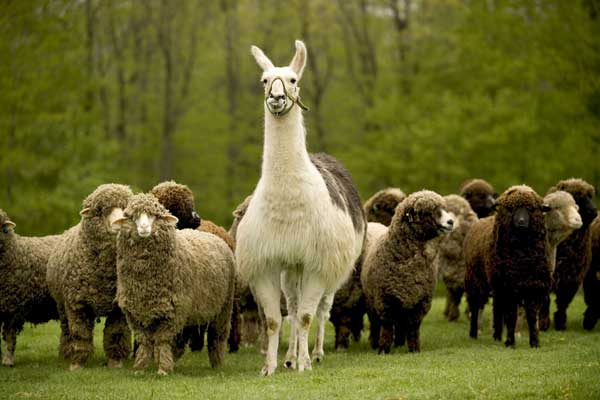
Llamas have been used successfully as guard animals for sheep, goats, cattle and miniature horses. They are very intelligent and curious, and can recognize family pets, neighbors’ pets, and the difference between them and coyotes. Their curious nature and athletic ability bring them into proximity to the coyote, causing the coyote to leave the area. Gelded males are preferred as guard animals. They work best without other llamas, in this case, adopting the herd they are protecting as their “own” herd.
Do Llamas and Alpacas Like to Live Alone?
Llamas and alpacas are herding animals and are most happy when in the company of other animals, preferring other llamas or alpacas.
Should Non-Breeding Males be Castrated?
Not every male must be castrated. This is an individual choice that can be based on the temperament of the animal, and many get along fine without castration. There is some disagreement among breeders and owners regarding this subject.
How Long do Llamas and Alpacas Live?
Llamas have a life expectancy of approximately 20-25 years.
When do They Reach Breeding Maturity?
Breeding capability is reached by 16-24 months. Some breeders start females at 12 months (some females will be capable at 9 months), with most breeders waiting until 24 months to allow full development of the mother’s growth. Males usually don’t reach sexual potency until 24 months, with the rare one becoming potent as early as 12 months.
What is the Gestation Period?
The gestation period is 11-1/2 months (350 days average).
When do Females Stop Breeding?
Females will breed throughout their life.
How Much do They Weigh When Born?
The average llama cria (baby) weight is 25 lbs. and alpaca crias average 18 lbs. Mothers almost always give birth to a single cria, with twins being very rare.
Related Articles & Free Email Newsletter Sign Up
Frequently Asked Llama and Alpaca Questions
The Versatile Donkey is Everything from a Protector to a Babysitter




Comment here